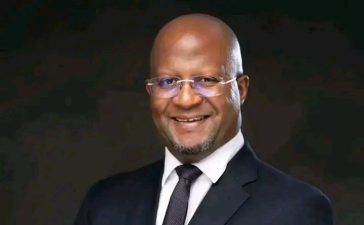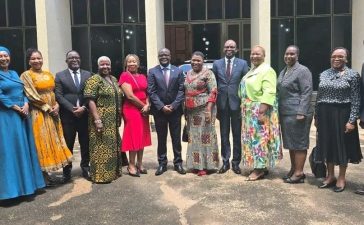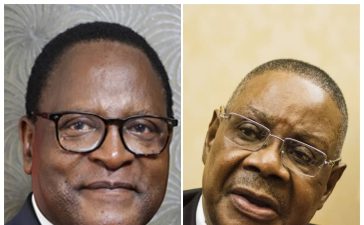Simmering tensions have manifested between the Democratic Progressive Party (DPP) and the United Transformation Movement (UTM), with heated exchanges unfolding and allegations of corruption flying. We are not merely spectators to a political show; we are witnessing a profound lesson on loyalty, betrayal, and the turbulent nature of political ambitions.
At the heart of this conflict lies Dalitso Kabambe, a figure who, in eyes of many, represents fraud and deceit. His recent posture, asserting his intention to run independently in the upcoming September elections, has provoked a bitter backlash from DPP, the party he ostensibly represents as a ‘plant’. DPP’s discontent stems from Kabambe’s refusal to stick to an unwritten but presumably understood agreement that he would support an alliance to recover votes lost under the late Saulos Chilima.
This situation reveals a deeper truth about partnerships in politics—while they can yield short-term benefits, they are often fraught with complexities that can lead to fracture. UTM, having just exited a tumultuous alliance with the ruling Malawi Congress Party (MCP), is understandably cautious about ensnaring itself in a partnership with proven crooks – the DPP, who are subtly not willing to give him either torchbearer or running mate positions.
Yet, it is essential to consider the motivations driving each party. For DPP, the threat of Kabambe’s independent run is not merely about losing a possible candidate. It reveals a larger concern: the fragmentation of lhomwe belt votes and erosion of trust within their ranks. When a member deemed a ‘blue-eyed boy’ veers off script, it threatens the cohesion of a party that has weathered its own storms of corruption and mismanagement.
DPP’s reactions—cries of betrayal masked as a political strategy—show us a party grappling with its identity amid accusations of corruption, both as a tactic against UTM and as a means of self-preservation in a rapidly evolving political landscape.
However, UTM’s resistance against DPP’s overtures is equally revealing. Kabambe’s assertion of his popularity is not merely an expression of personal ambition but a manifestation of his desire to shape his own political narrative. Yet, independence is a double-edged sword. As UTM rallies around Kabambe amid accusations of impropriety, one must wonder whether the political gamble will pay off. Will the electorate rally behind a leader who has been marred by controversy, or will his past at the Reserve Bank of Malawi overshadow his marketed ambitions?
The ongoing feud is emblematic of the broader narrative in most opposition parties in Malawian politics—a struggle for integrity, accountability, and a firm commitment to the electorate. Political ambitions, however fervent or justified, must always remain second to the ideals of transparency, unity, and—most importantly—service to the people of Malawi, attributes that are fundamentally lacking in both DPP and UTM geno makeup.













